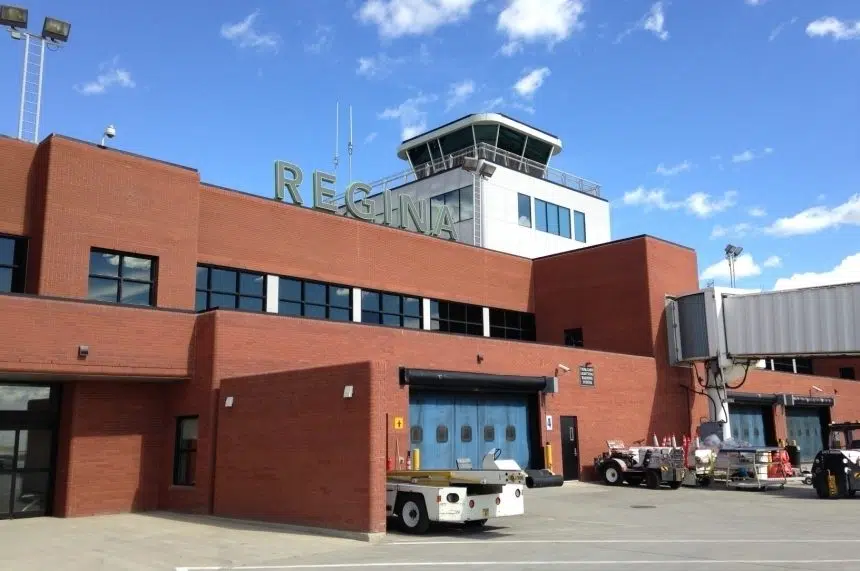Regina’s airport is keeping its air traffic control service.
In a post on its website Thursday, NAV Canada said it will maintain the service at airports in Regina, Fort McMurray, Alta., Prince George, B.C., Saint-Jean, Que., Sault Ste. Marie, Ont., Whitehorse, Yukon, and Windsor, Ont.
The company started a review of its services at those airports in November, prompting concerns the Regina airport would be losing its air traffic control service.
On Thursday, NAV Canada said it had elected to keep services intact after consulting with airlines, airports, industry associations, local officials and internal stakeholders.
“Stakeholder engagement is at the heart of NAV Canada’s aeronautical study process,” Ray Bohn, NAV Canada’s president and CEO, said in a statement. “The valuable input we have received indicates that a balanced approach is warranted as the industry navigates the ongoing pandemic.
“We are proactively taking these steps to maintain a consistent level of service as the aviation industry and our many partners shift their focus to recovery.”
The company said its reviews of airports now will look at other alternatives to streamline its operations, including potential changes to hours of operation.
Regina Airport Authority CEO James Bogusz said he was “very, very pleased” with the outcome.
Bogusz had raised the red flag about the potential loss of the service, sending a letter to the federal government in hopes it would intervene.
The Saskatchewan government voiced its concerns, as did Regina Mayor Sandra Masters and Regina-Wascana MP Michael Kram.
“Because of that community effort, it’s less of a surprise to get this outcome,” Bogusz said. “The fact that they could, and did, really shows strong leadership from NAV Canada.
“If we hadn’t had that type of initiative with all those businesses getting behind us and residents, I do not believe we would have had this result today.”
While the potential loss of the airport’s control tower was not generally believed to impact safety, it would have hamstrung the airport’s ability to handle traffic.
As well, many feared the tower’s closure would stunt the economic recovery in the Regina region.
“Being a capital city and a growing city in a growing province — and we will be right back there once we are able to put this pandemic behind us — it’s going to be all about recovery and all about growing our economy and growing our population again,” Bogusz said.
“Having the constraints of no air traffic control tower at an international airport would be very challenging. Frankly, it would reduce our operational capacity, reduce our operational capacity, reduce the ability to have a steady flow of traffic at peak times and it would have been a big constraint on that growth.”
Masters issued a statement in response to the NAV Canada announcement.
“Regina’s airport is vital to our city’s economic growth and prosperity,” she wrote. “Continued operation of our traffic control tower ensures our city remains competitive as we work to attract new corporations and businesses that rely on national and international travel.”
Stress over the possibility of a closure came to a head in January when NAV Canada issued layoff notices to more than 100 staff, including 10 in Regina.
Since those layoff notices came before the studies were complete, Bogusz questioned whether the outcome was predetermined, which NAV Canada denied.
“We believe there’s still a few months to go before a report would be generated and of course now (there’s) this news about these notices going out,” he said at the time. “We find this very concerning and we will be reaching out to the Minister of Transport as we are crafting a letter asking them to intervene and to look at this whole process.”
Premier Scott Moe responded to Thursday’s news with a tweet.
This is a crucial service for our capital region, and we’re pleased that this decision has been made. [2/2]
— Scott Moe (@PremierScottMoe) April 15, 2021







